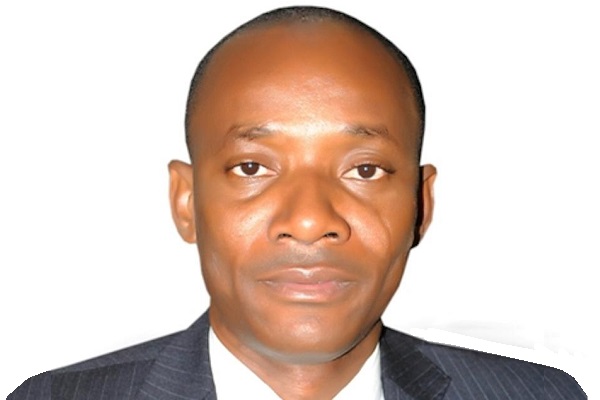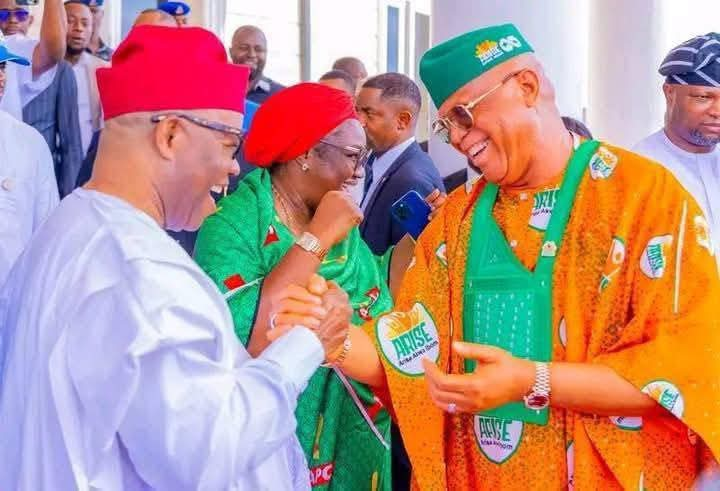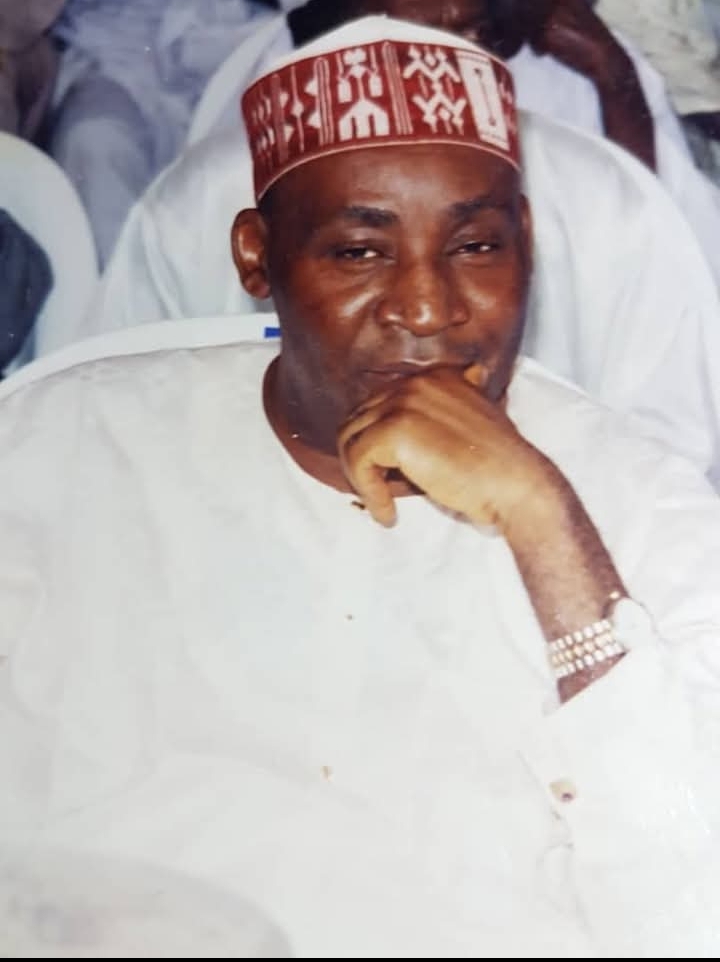The sudden but predicted removal of fuel subsidy has sparked some fireworks and a lot of incoherence about the Nigerian economy and its sociopolitical currents. In the matter of subsidy, I suspect that there is as much consensus as confusion. The major presidential candidates all committed to removing fuel subsidy, although with different nuances about what comes before and after.
Notably, Mr. Peter Obi, the presidential candidate of the Labour Party, promised to first establish the exact amount of consumption as to establish the volumetric impact of subsidy. He would then reduce it by 50% at the first instance with simultaneous mitigators. President Ahmed Bola Tinubu promised swift removal of subsidy and reinvestment of the savings in infrastructure. Atiku’s plan is not very different from the two.
But none of them has a coherent plan about how the manner of removal of subsidy entails any of the strategic objectives they intend to achieve in the economy. Now, think about it. Nigeria has the lowest minimum wage in the world, or at least any of its comparable countries.
Let us take a few examples. Pakistani is a comparable country to Nigeria in terms of population, diversities, and economic development. Its minimum wage is $111. South Africa has a minimum wage of $226, while Saudi Arabia has $958. Minimum wage in neighboring Chad is $108.2. War-torn DRC has a minimum way of $92.47. Nigeria’s minimum wage is $68, the lowest in the World.
Besides, Nigeria is one of the poorest countries in the world with an estimated 80-90m very poor citizens. The recent NBS estimates report that 143m Nigerians are multidimensionally poor. The current unemployment is about 33.4%. The concern should be how proper pricing of an essential product like premium motor spirit (PMS) would impact on the livelihood and wellbeing of majority of these citizens.
In the context of pervasive poverty, any serious economic plan must relate actions like removal of subsidy to managing poverty. The sad part is that poverty is self-perpetuating. It does not reduce itself except there is an effective policy response. So, the reasonable prediction is that unless something drastic is done, poverty will continue to increase.
The minimum you would expect from a serious economic plan in Nigeria about removing subsidy should be that it argues how the removal will reduce poverty, or at least not worsen it. The only policy response of the Buhari administration was a proposed N5,000 one off cash transfer to about 40milion households.
The intersection of the economics of subsidy removal and the economics of poverty reduction in Nigeria frames the fight over subsidy removal. The two broad camps opposing each other on the wisdom of the abrupt and complete removal of fuel subsidy are looking through two different lenses: efficiency and equity. The efficiency camp focuses on the balance sheet of government.
Subsidy creates a big hole there and contributes to fiscal bankruptcy of the federal government. When a government spends double the amount it budgets for education and health to subsidize a product used mostly by rich citizens who can afford to pay for their use, then the provision of such goods or services is patently inefficient. Twentieth-century economics rates high the idea of market efficiency based on the theories of Kenneth Arrow and Gerard Debreu.
That theory holds that a market can be competitive and efficient (under some assumptions) at the right prices that converge all subjective preferences. At this price, the demand matches supply. The free market requires flexible prices that reflect the equilibrium points where supply equals demand. We know that in the real world, markets are rarely perfect and fully competitive because of both externalities and asymmetries.
The concern for efficiency in the consumption of PMS is two-fold. First, efficient pricing will remove the federal government from paying for PMS and reduce the public sector borrowing requirement for a heavily indebted, low revenue country like Nigeria, that spent 78% of its revenue in 2022 servicing debts. In the past, the NNPC would pay the difference between market prices and actual costs.
This created room for serious fraud. Today, NNPC imports the PMS and sells to marketers at costs and mark-up. The landing costs which NPPC incurs on behalf of the government constitute the ‘subsidy payment’. What matters for government in the subsidy case is that market for PMS will now be one that consumers pay for what they consume. This is cost-efficiency.
The second value of price efficiency is that people will make efficient use of the product, consuming when they need it and can afford it, and forbearing when they don’t need it and can forbear. If the price equals costs, there would be no need to subsidize the supply and no incentive to smuggle the product through the borders because there is no price differential.
Nigerian porous requires policing. But it is cheaper to achieve the same objective through pricing. In this case, the price in-state is the same or close to the same as the price out-state. How much will government save if it allows the price of PMS to equal the cost at any time? It estimates that it could save about N10trillion annually. The argument is that the saving will go into building infrastructure, which will drive up growth and improve welfare.
The efficiency logic goes together with the argument about the proper role of government. Public sector economics believes that a state properly plays three roles in a society: allocative, distributive and stabilization roles. The allocative role of the state prescribes efficiency, which requires that the state allocates resources to where it is most efficiently utilized.
Proper pricing is one mechanism of attaining allocative efficiency. The distributive role relates to concern about what is happening to the wellbeing of citizens. The official orthodoxy of the Washington Consensus used to be that ‘a rising tide lifts all the boats’. In the subsidy debate, it translates to saying ‘we recognize that the removal of subsidy will cause hardship to many.
But don’t worry, trust us. Once we invest the savings into infrastructure there will be good life for all”. But the thing though is that the return of investment in infrastructure for citizens will not correlate to ending the suffering, even in the long term.
In the short term, the investment will not mitigate the extreme hardship that the poor and vulnerable citizens will suffer. A rising tide does not lift all boats. It depends on the nature of the current, what the boat is made of and how it is steered.
Whereas government will focus on efficiency rather than equity, the labour movement and associated groups pick up the equity lens. The state overriding obligation for the security and wellbeing of the people commits it to more than efficiency considerations. In fact, efficiency must be coupled with equity.
The mistake of the subsidy debate is to assume that the existence of subsidy as an equity issue dispense with efficiency from an economic perspective. As the first African Noble Laureate in Economics, W. Arthur Lewis put it in his classic text on economic growth, efficiency translates to economizing. That is, ensuring we produce more with less. Subsidy administration can be efficient and inefficient.
We can target it to the group that needs it and in the measure it needs it, without damaging incentive for economizing. The main problem may not be the existence of subsidies as much as the gross inefficiency and corruption in their administration.
Most Nigerian elites seems to agree that fuel subsidy should be removed. But the elite consensus to remove the entire subsidy and expose the working and unemployed poor to poverty and immiseration does not translate to a consensus to attack many layers and levels of entrenched inefficiency in Nigerian political economy. The Orosanya Report recommended rationalization of parastatals and agencies to reduce costs of governance.
Successive Nigerian leaders have refused to implement the report because it will result in powerful elites losing high paying political jobs. Nigerian legislators earn the highest in the world with a bankrupting economy. The annual salary and benefits of a Nigerian senator is about N350m while that of a minimum wage earner is less than N400,000. Despite clamor and street protests, legislators have refused to cut the gross waste.
Nigeria loses about 470,00 bpd (amounting to $700m monthly) of its crude to thieves working for top military and political leaders. There is no consensus to go hard on oil bunkering because it is Nigerian military and political leaders who are involved in the criminality. We have accepted this inefficiency in our stride.
There is no doubt that Nigeria can ill-afford this level of subsidy payment with its low revenue profile. The fiscal crisis of the Nigerian economy is endemic and needs a drastic action to stabilize. That brings up the third role of government in public finance: stabilization. The government should consider how its fiscal and monetary policies affect employment, prices, and productivity.
The inflationary impact of subsidy removal may undermine growth and economic recovery. It may reduce household consumption and aggravate poverty. This is why some who support the removal of subsidy are worried at its abrupt and reckless removal. As part of the government’s stabilization role, it must think of mitigation of the social and economic impacts of the policy.
It is difficult to convince any empathetic person that people living on less than N30,000 monthly should buy petrol at N535 per liter. If they pay the associated costs of the increase in petrol prices, we expect they will have less to expend on consumables that improve their wellbeing and enable them to escape poverty.
So as food inflation rises at the heels of subsidy removal, we expect access to basic nutrition, health, and education to reduce, worsening poverty and inequality. The federal government is responding by promising an increase in minimum wage. Labor unions will surely bargain for mitigation for workers. But the population of Nigerian in formal employment is negligible.
What happens to the rest of Nigerians in informal sector with no regular jobs or those tapped in the bottom million who cannot externalize the pass-through costs of petrol? Those are the victims of the Nigerian economy designed to cater to the wellbeing of the rich and political elites.
In the short to medium term, none of the conventional mitigations, including the ridiculous N5,000 cash transfer to 40million poor household. will shield the over 80milion poor Nigerian from the crushing impact of the drastic spike in energy price.
The point to make is that Nigeria’s economy is designed to produce inequality and inequity expressed by the consensus to remove fuel subsidy for its obvious inefficiency. Because the economy is steeped in inefficiency it continues to be unproductive. When its unproductivity leads to fiscal collapse as we are verging close, the elites take a purgatory action by sacrificing again its weakest members.
Concerns for equity in the wake of the elite consensus to remove petrol subsidy should not be only to increase the minimum wage or provide public buses to transport workers to work in urban cities. It should extend to revising the fundamental structure of the Nigerian economy that makes it the least protective of the citizens and the most effective in producing poverty and inequality.
Nigeria is not just one of the most inefficient and poorest countries in the world, it is also one of the most unequal and privileged. With Gini Coefficient of 35.1% and lowest social protection, even in the West African region, it is obvious that the usual World Bank palliatives will not succor the real victims of the subsidy removal.
Oxfam rightly observed that the drivers of poverty and inequality in Nigeria are the almost complete focus of national budget on sectors and projects that cater to the rich, the erosion of labor protection in pursuit of neoliberal policies, and the total absence of social protection for the people. The removal of fuel subsidy in the manner solicited without significant recasting of the Nigerian economy will enhance these drivers.
The Nigerian constitution glibly proclaims that Nigeria is a social welfare state. But its political economy always ambles towards an incoherent pseudo-capitalist state. Should we trust the Tinubu administration to alter the structure of the Nigerian economy to reduce its inequality and improve social protection for the working and unemployed poor?
Well, evidence from over two decades of ‘progressive’ leadership in Lagos State does not convince. As Tinubu and his successors made Lagos rich, they kicked millions into more poverty and underdevelopment. The two Lagos live side by side: one in high-rise buildings and the other in dignified slums. This inequity is not just a Lagos problem. It is a Nigerian problem. The Nigerian economy works only for the privileged few.
As the federal government and labor leaders agree to save Nigeria from fiscal collapse by accepting the draconic removal of fuel subsidy, we know that once again, Nigeria has outsourced its inefficiency to its unprotected poor. Save the nation and damn the poor. Read more.





